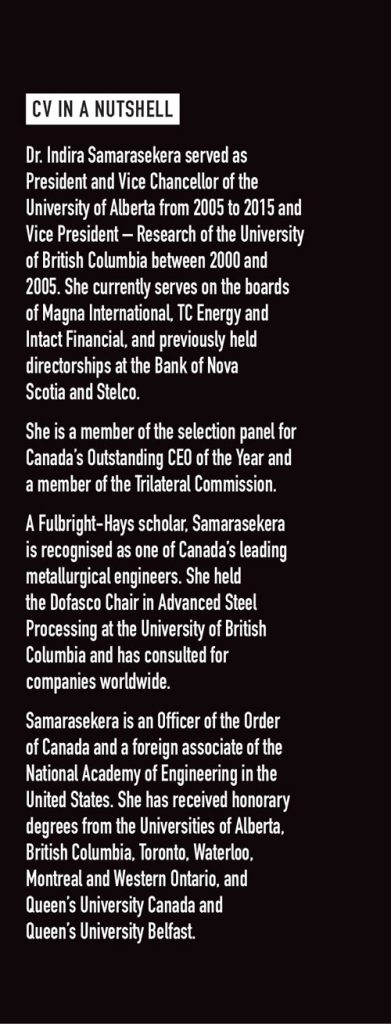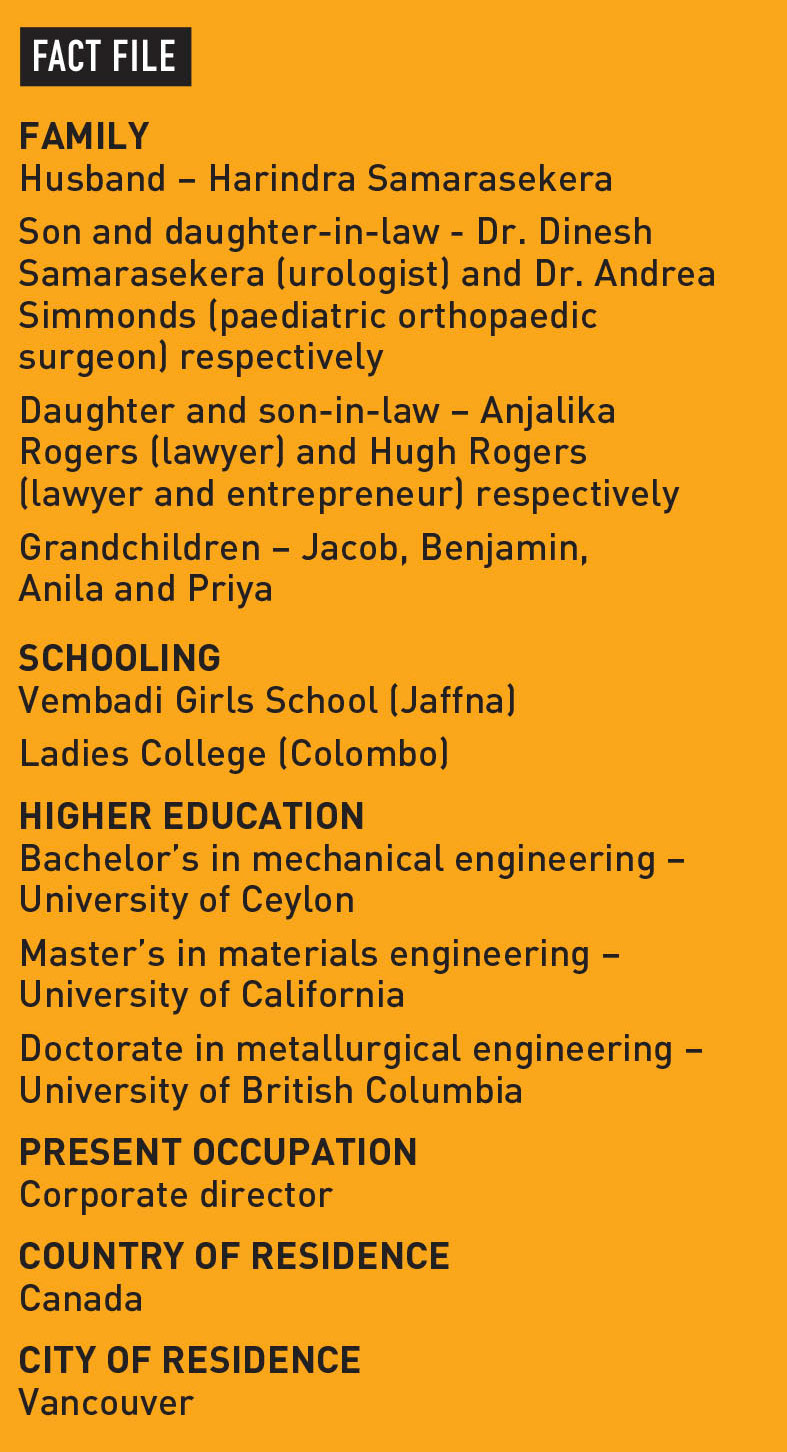Dr. Indira Samarasekera
The nerve to lead
Women are good at most things – we are proficient at collaboration, consultation and compromise, all of which are important leadership skills

Q: How has corporate governance evolved over the past decade? And what key trends should companies be aware of going forward?
A: Over the past few years, we have seen massive changes in the landscape within which corporations operate.
These changes include increasing digitalisation, a surge in inflation, climate change, innovation in energy aimed at reducing emissions, geopolitical instability – such as conflicts in the Middle East and the Russia-Ukraine war – income inequality and misinformation, resulting in populist movements and political polarisation.
In this context, corporate boards must embrace a more inclusive form of capitalism, and succeed not only by rewarding investors but also benefitting employees, suppliers, customers and local communities.
Corporate governance must evolve in response to these challenges to ensure that companies can deliver sustainable prosperity.
Q: In what ways do you see AI reshaping business models – and what are the critical governance issues companies should address when integrating artificial intelligence into their operations?
A: Corporate governance must prioritise strategy and risk oversight when adopting AI, as it will greatly enhance competitiveness and profitability.
Boards must ensure there’s a business led digital road map that incorporates AI into their company’s operations. This plan should align talent, technology and data to enable the company to stay ahead of the competition.
It is crucial to ensure that data is used strategically and is accessible, and that employees are trained in AI advancements. It’s also important to manage risks such as IP infringements, data privacy issues, hallucinations, fairness and bias in the adoption of AI.
Q: How can companies navigate the increasing geopolitical risks of a nation? And what governance structures are essential to manage these uncertainties?
A: Geopolitical risks have increased dramatically over the last decade. Corporations require a robust enterprise risk register that identifies their top strategic risks and accounts for the influence of geopolitics on these risks.
For example, the Russia-Ukraine war disrupted access to natural gas in Europe, which created opportunities for LNG producers in the US to step in and supply the shortfall. This illustrates the impact of geopolitical risks on the oil and gas sector.
Q: As a former president of the University of Alberta, what parallels do you see between leading an academic institution and serving on a corporate board?
A: Universities – especially large publicly funded research institutions like the University of Alberta – are very complex in nature. As president, you are responsible for reform, resources, risks and reputation, while managing influential stakeholders such as faculty, staff, students, alumni, donors and the government.
Corporations share many similarities in terms of complexity and stakeholder relations. Directors need a broad perspective, sound understanding of the business environment and levers of profitability, and active employee engagement skills. University presidents develop many of these skills in their leadership role.
Q: How has your background in metallurgical engineering influenced your approach to corporate governance – particularly in sectors like steel processing?
A: I was fortunate to spend many years consulting for the steel industry while I was a professor in metallurgical engineering at the University of British Columbia. As a result, I developed an awareness of the impact of poor steel quality on profitability.
I subsequently served on the board of Stelco, an integrated steel company in Ontario, where my knowledge of the industry proved invaluable in my role as a director. This experience also made me aware of the importance of understanding the industry in which a corporation operates to be an effective company director.
Q: Can you share a few leadership lessons from your book ‘Nerve: Lessons on Leadership From Two Women Who Went First’? How can they be applied in today’s corporate environment?
A: In our book, we define ‘nerve’ as an important attribute of leadership, especially for women. Nerve to be true to yourself, to take a path less travelled, to go first, to act decisively and to redefine yourself.
Women are good at most things – we are proficient at collaboration, consultation and compromise, all of which are important leadership skills. But if there is one characteristic we must actively work on developing, it is nerve.
It is an essential trait for being an independent corporate leader who has the courage to ask tough questions and speak up in the boardroom.



